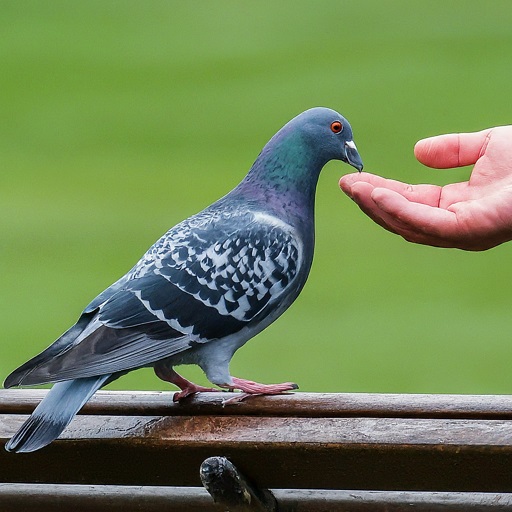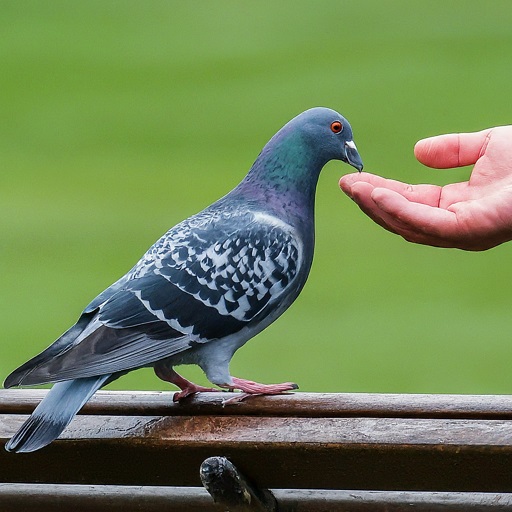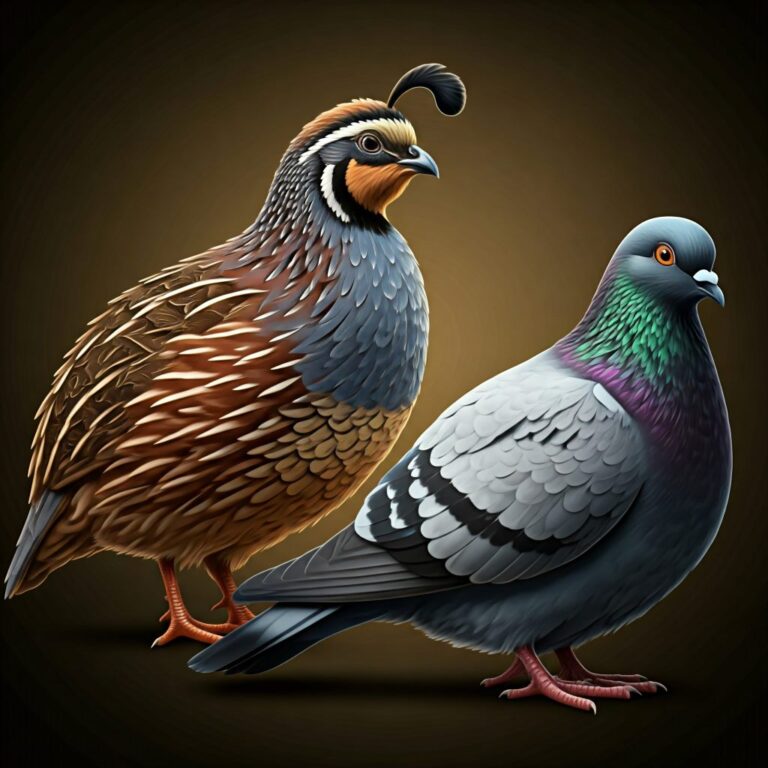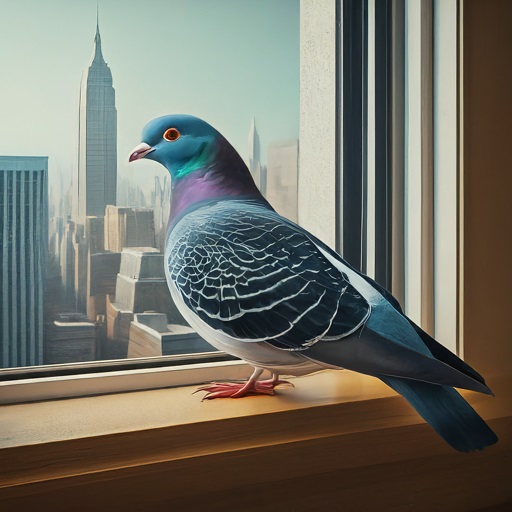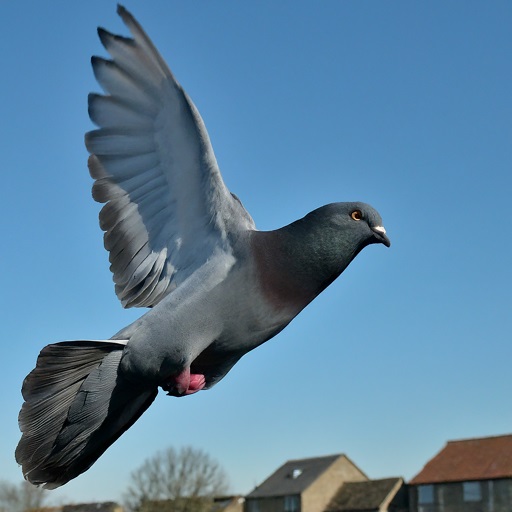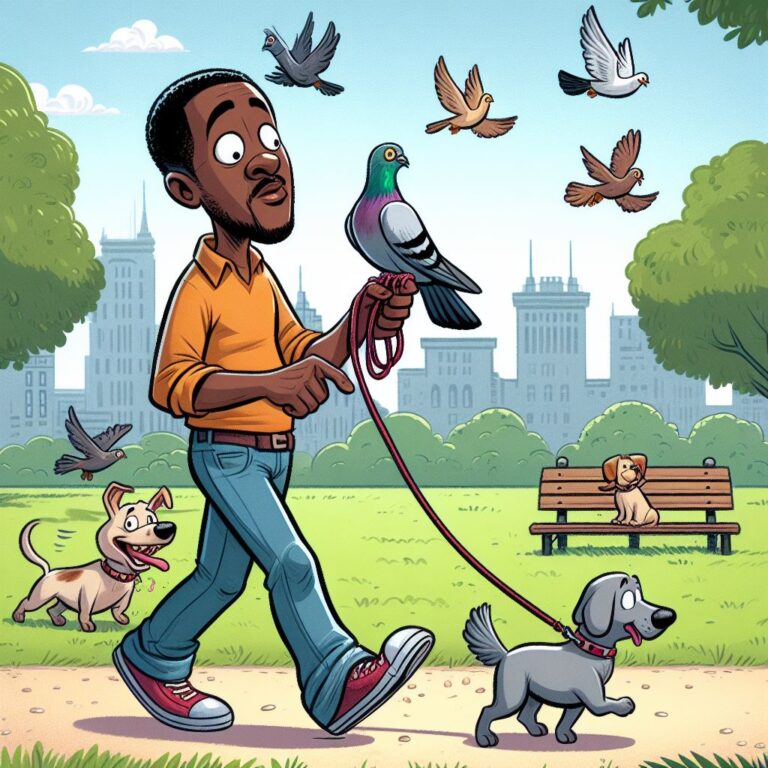Do Pigeons Like to Be Petted?
Since pigeons are a very common site in urban environments, consider having one as pets in captivity. However, before you keep any pigeon in captivity, you might wonder, ‘Do pigeons like to be petted.’ In this article, I’m not only going to answer the question ‘Do pigeons like to be petted’ but also whether they enjoy human interaction at all or not.
Therefore, if you are keen on learning about the world of pigeons & exploring whether these aloof Birds harbor any soft spot for human affection, read this article for all. When it comes to understanding the human-pigeon interaction, many intriguing facts exist. Before I tell you all these things, let’s begin with learning: Do pigeons like to be petted?
Do Pigeons Like to Be Petted?

Whether pigeons like to be petted or not will vary based on individual birds & their experiences. As per the University of Cambridge, pigeons exhibit differing responses to human touch. Some pigeons may tolerate or enjoy petting, while others may feel uncomfortable or fearful. It would be best never to approach wild pigeons as it may lead to unwanted stress while disrupting their natural behavior.
It is important to pay attention to the body language & reaction of pigeons to gain valuable insights into their comfort level during human interaction. Understanding their behavior will give you valuable insights into how they feel when you touch them. When it comes to knowing about their past interaction with humans, they share a rich history associated with us, dating back thousands of years.
Plus, pigeons tend to be highly creatures & have often been seen in flocks. Research from the corner lab of ornithology found that pigeons are remarkably intelligent & may recognize human faces. Also, they are said to carry excellent navigational ability with the capacity to find their way home from a great distance. This trait has made pigeons very popular for home and racing purposes. When it comes to knowing about their interaction with humans, there are a few things that you need to know.
Body Language & Reactions
As I told you earlier, you first need to pay attention to the body language of the bird you are looking at & considering to pet. The body language of all birds is very helpful in understanding whether they’re comfortable with human interaction. Research on the max plant institute for Orthology reveals that pigeons may display signs of relaxation, like cooing or puffing up their feathers, whenever they feel comfortable. On the other hand, if the bird seems tense up, flapping their wings, and attempting to escape, the pigeon is already feeling & easy.
Human Interaction & Pigeon Trust
Another thing that you need to consider is human interaction as well as pigeon trust. While doing my research, I encountered a study published in the Journal of comparative psychology revealing that pigeons may develop a level of trust & bonds towards familiar humans. Pigeons with positive experiences with humans from an early age are more likely to be receptive to petting and handling. On the other hand, if the pigeon has never experienced human interaction or has experienced negative encounters with us, it may exhibit avoidance behavior.
Human-Pigeon Interaction
Throughout history, you will find that the interaction between humans & pigeons has been both positive & negative. In ancient times, pigeons were valued for their ability to carry crucial messages across long & vast distances, serving as messengers during battles & wars. But in modern urban settings, pigeons are often considered a nuisance & pest due to their droppings or scavenging behavior.
Also, their nests can be a problem, and if you learn to know why, consider reading my article on ‘Why Are Pigeon Nests So Bad.’ Even though urban pigeons have learned to coexist with us & adapted to city lives, some people hate them for their messiness. Since pigeons are known to poop a lot & everywhere, it is becoming quite a nuisance, especially on private properties.
If you learn to know more about the pooping behavior of pigeons, consider reading my article on ‘Do Pet Pigeons Poop Everywhere‘ & if yes, what are the ways to mitigate this potential concern. Also, If your property already has a pigeon nest, you might want to eliminate it. If this is the case, consider reading my article on ‘How to Get Rid of Pigeon Nests‘ and ‘How To Stop Pigeons Nesting.’
But before you consider pigeon nest removal, I will advise you to learn ‘what happens if you destroy a pigeon nest,’ especially without consulting a professional. Coming back to the point, many people enjoy feeding pigeons in parks & squares while others attempt to pet them as they would other pets. But if you want to know more about ‘Do pigeons like to be petted,’ below are a few factors to consider as they may influence pigeon responses to human touch.
Factors Influencing Pigeon Responses

Numerous factors can influence how pigeons respond to human touch. Understanding these factors can provide valuable insights into creating positive interactions with these birds.
Environmental Factors
Since most pigeon populations are commonly sighted in urban settings, the environment also significantly shapes their behavior. According to a study by the University of Bridges, pigeons thriving in busy & crowded areas tend to be more cautious & less receptive to petting. On the other hand, pigeons living in quieter & less crowded spaces are more likely to be open to human interactions. To enjoy interacting with pigeons, visit nearby rehabilitation centers or pigeon club associations.
Individual Differences Among Pigeons
Just like any other human, pigeons also have unique personalities. While researching, I learned about a few studies from the University of Exeter that suggested some pigeons may be more social & trusting. At the same time, others can be very cautious & reserved when it comes to human interaction. Therefore we must respect each pigeon’s individuality to foster positive interactions and reduce any stress or disruption of their behavior.
Ethical Considerations & Health Implications
As we contemplate petting pigeons, it’s crucial to address the ethical & health aspects of human-pigeon interactions.
Ethical Considerations
When it comes to petting the wild pigeon, ethical dilemmas are likely to arise. This becomes more important if you ever consider adopting wild pigeons as pets. It is never recommended to keep pigeons as pets & if you want to know why, consider reading my article on ‘Can You Keep A Wild Pigeon As A Pet.’ Coming back to the point, a study from the University of Oxford found that human intervention, like feeding the birds, may disturb the natural behavior of wildlife, further leading to the potential dependency on human interaction for their survival. Plus, petting pigeon raises concern about the impact on their well-being & natural behavior.
Health Implications
You should also note that petting pigeons may have health implications for both humans & birds. If you want to know more about the health risk associated with pigeon petting, I will advise you to read my article ‘Are pigeons bad for your Health.’ According to a research paper published in the Journal of avian biology, the pigeon population in urban areas contributes to air quality issues due to their dropping, which carries many pathogens. In addition, pigeons carry some diseases, including avian influenza and histoplasmosis, which can easily be transmitted to humans during close contact.
Alternatives to Petting Pigeons
If you enjoy observing pigeons & want to interact with them respectfully, there are several alternatives to consider.
Feeding Pigeons Responsibly
You can consider feeding pigeons responsibly through a bird feeder with foods like seeds, fruits, vegetables, grains, and pellets. The royal society for the Protection of Birds suggests we should provide appropriate bird foods like seeds, green & freshwater in a bird feeder to attract birds to our landscape. However, avoid overfeeding, which may lead to health issues and aggressive behavior.
Creating Pigeon-Friendly Environments
When it comes to the well-being of a pigeon, we must support them in their natural behavior. Since pigeons are becoming quite a problem, especially when they build nests on buildings, rooftops, ledges, under solar panels, bridges, etc., we must design our urban spaces with appropriate nesting sites, perches & clean water sources to mitigate the risk of damaging building structures & metal components. If you want to know more about pigeon nesting sites, I will advise you to read my article on ‘Where Do Pigeons Nest.’
Conclusion
After reading this article, I hope you learn the answer to the question, ‘Do pigeons like to be petted.’ Whether pigeons like to be patted doesn’t have a one size fits all answer. You must know that pigeon behavior may vary based on individual bird experience and environmental factors. According to my research, some pigeons may enjoy gentle human touch while others prefer to keep their distance.
As we continue to adapt to living with pigeons & other wildlife, we should consider the ethical applications & potential ways. I hope I have given you all the information you need on the question, ‘Do pigeons like to be handled.’ If you find this article helpful, then consider sharing it. Your share will help many people learn about the importance of respecting pigeons’ natural behavior and creating a suitable environment for them to foster a positive relationship with these fascinating creatures.
Next time you spot a pigeon in a park, you must take a moment to observe its intricacies & appreciate its unique presence in our urban landscape. Even though pigeons may not crave petting, they certainly have a place in our shared world. Do check my other helpful guide on the care & management of pigeons as pets. See you in the next post, till then, take care & goodbye.

